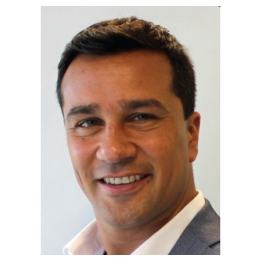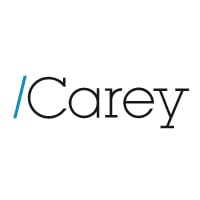

Legal head, LATAM South Pacific | GSK



Jean Paul Azaro Silva
Legal head, LATAM South Pacific | GSK
How do you approach managing legal aspects during periods of instability or crises, and how does your legal strategy align with the broader business strategy to ensure the organisation’s resilience?
Managing legal aspects during periods of instability requires a lot of different soft skills, because you have to know how to treat people in those difficult moments, but also requires proactivity and being more flexible when taking some decisions. In that regard and to align the legal strategy with the broader business strategy we, as in-house lawyers, must understand first the business and its short, medium and long-term goals, and how legal can support these objectives. So, in order to establish a plan to face these difficulties, we need to do the following:
Create a “Cross-Functional Crisis Team”, involving commercial, legal, compliance, and any other position that has to be involved, in order to establish clear roles and responsibilities to all of them. Each member will have to think what kind of risks they are exposed to there, and according to that, rank them in order of urgent, important and others.
Identify and present any potential legal or compliance risks associated with the different scenarios presented by the team, including an explanation of the impact of these risks on the organisation, and if we must create any contingency plan for potential legal risk.
Appoint one person to be the one who will communicate all the decisions taken by the team, internal and externally, ensuring clear communication by reviewing it by all the subject matter experts.
Create a monitoring plan including responsibility, deadlines, and recurrence.
All the work done during this crisis (eg. decisions, plans, communications, etc.) must be duly documented for audit purposes.
All the time, but especially during and after a crisis, one of our main focuses should be always the people, because they are the motor of any company, and if they are not fine or protected in these situations, the company will not succeed.
In my opinion, by taking these steps, legal management during crises can be effectively integrated with the broader business strategy, ensuring the organisation’s resilience and ability to navigate challenges successfully.
What emerging technologies do you see as having the most significant impact on the legal profession in the near future, and how do you stay updated on these developments?
I think one of the most emerging technologies (and I really don’t know if we can still say that is emerging) that can have a significantly transversal impact, not only in the legal profession, but in any profession and also in life, is Artificial Intelligence (AI), because through it we can be more efficient, accurate and way more creative.
I have used some AI tools that have surprised me for good, such as an AI tool for contract management processes, where you just to log into the system, select the template of the contract you need to sign, introduce commercial terms and conditions, and that is all…then you send it for signatures (both parties…even if your counterpart does not have the system), and once it is signed, it is stored by the system; you will then be reminded once the contract is close to its expiration date. Many lawyers thought that if the business uses that tool, they will have no more work to do…but they did not think that that AI tool has freed them up with extra space for them to focus on the business and other things they can do for it from a legal perspective.
Another incredible AI tool is Co-Pilot, which helps you make a transcription of any meeting, also providing a summary of the key points and action plan if it was defined during the meeting. This tool allows you to focus on the meeting instead of taking notes of it.
Despite the many AI tools that have been launched, as lawyers we need to know not only how to use them, but also how to regulate the framework to be used by other people who do not always know how to take advantage of these tools.
In that regard, we have to be more focus on understanding the psychology of the people who use the tool, in order to create a safe framework for them and for the company when they use AI tools. To do that, we must be updated by participating in webinars hosted by tech companies, or any organisations focused on legal technology, but also, stay in touch with professional networks focused on legal technology.
Using these AI tools, or any other upcoming resource related with AI, and being proactive in learning about emerging technologies, trends, and other systems, lawyers can adapt to new tools to enhance their practice and be more efficient in it.
How do you prioritise diversity and inclusion within your legal department, and what initiatives have you implemented to foster a more inclusive and equitable work environment?
Diversity and inclusion is essential nowadays in any company, despite of the function you work for…It is an essential topic for fostering an equitable work environment and enhancing overall performance.
In order to prioritise Diversity and Inclusion (D&I) in the legal space, I needed to clearly understand what D&I means, participated in many internal courses that explained what D&I is and how is the best way to approach when you see any kind of discrimination, among other topics.
Once you build the knowledge about D&I, the most important thing to do is to ensure that the D&I is not only a trend but a vision and mission of the company and the tone has to be set from the top, with all the leadership team advocating for and actively participating in D&I initiatives. One of the most important things in this is that you really believe in what you are doing and saying, otherwise, it will sound like you are acting just because the company obliges you to do something in this regard, and people notice that. In order to prioritise D&I, clear communication is essential. But not a clear communication once a year — you have to be consistent, talking about the importance of D&I in every meeting when the legal department has the chance to reinforce the values of the team and that way, we will foster an inclusive culture where everybody can say what they think and feel valued.
When you already have a strong position and a clear communication regarding D&I, you must act accordingly, whether creating an unbiased recruitment process to hiring talents from a wide range of candidates; working directly with associations of underrepresented groups; or openly participating of any activity related to D&I.
Implementing one or more of these initiatives, you will foster a more inclusive and equitable work environment, multicultural and with less unconscious bias, leading to a more diverse, innovative, and high-performing team.
Legal and compliance head South Cone Cluster | Alcon Laboratories
Legal head and compliance officer for Chile and Argentina cluster | Alcon Laboratorios Chile
Jean Paul Azaro Silva started working at EY as a legal associate before joining two different law firms Cuevas Abogados and Mackenna and Irarrázaval, Cuchacovich & Paz Abogados. In 2009...